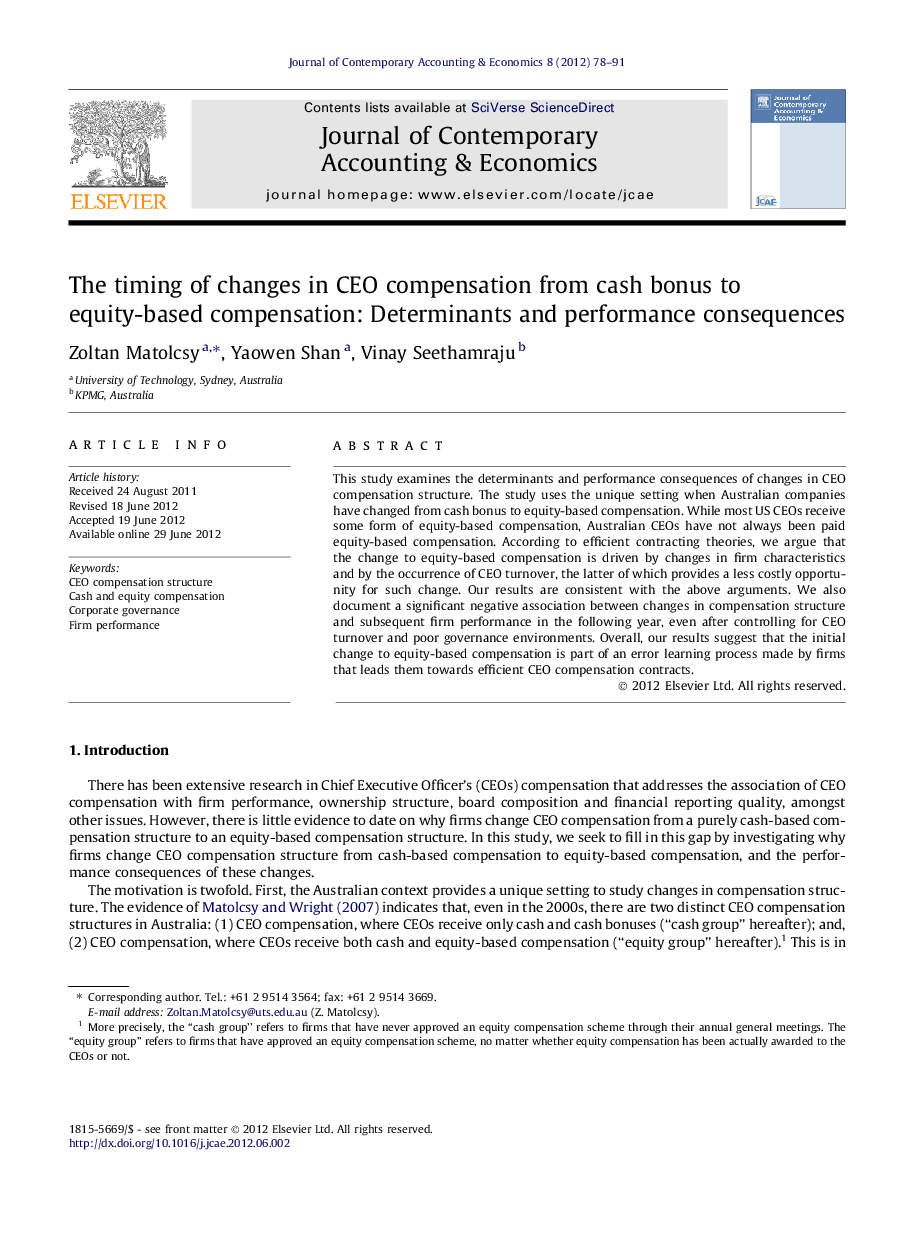| Article ID | Journal | Published Year | Pages | File Type |
|---|---|---|---|---|
| 5092941 | Journal of Contemporary Accounting & Economics | 2012 | 14 Pages |
Abstract
This study examines the determinants and performance consequences of changes in CEO compensation structure. The study uses the unique setting when Australian companies have changed from cash bonus to equity-based compensation. While most US CEOs receive some form of equity-based compensation, Australian CEOs have not always been paid equity-based compensation. According to efficient contracting theories, we argue that the change to equity-based compensation is driven by changes in firm characteristics and by the occurrence of CEO turnover, the latter of which provides a less costly opportunity for such change. Our results are consistent with the above arguments. We also document a significant negative association between changes in compensation structure and subsequent firm performance in the following year, even after controlling for CEO turnover and poor governance environments. Overall, our results suggest that the initial change to equity-based compensation is part of an error learning process made by firms that leads them towards efficient CEO compensation contracts.
Keywords
Related Topics
Social Sciences and Humanities
Business, Management and Accounting
Business, Management and Accounting (General)
Authors
Zoltan Matolcsy, Yaowen Shan, Vinay Seethamraju,
